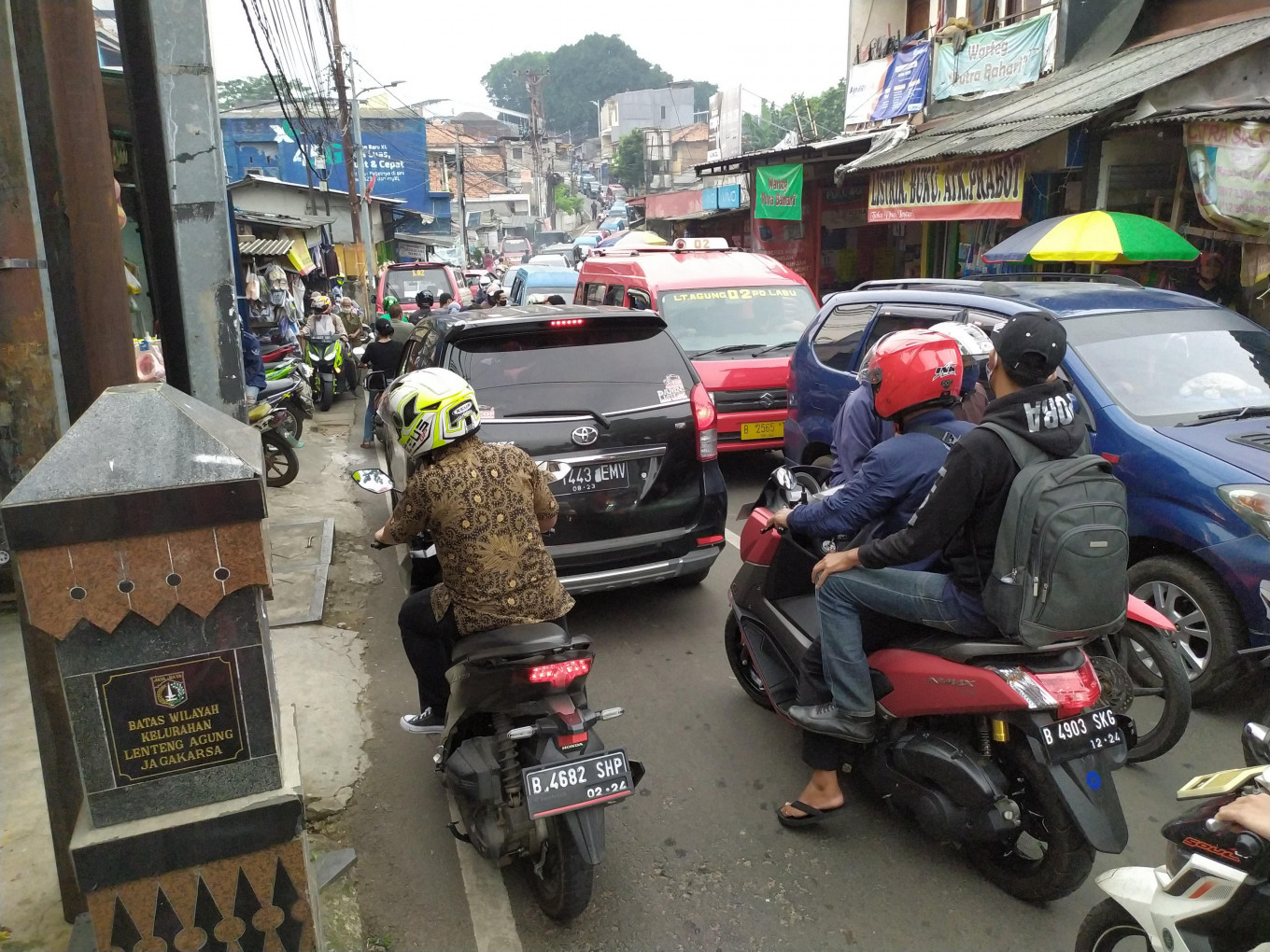Popular Reads
Top Results
Can't find what you're looking for?
View all search resultsPopular Reads
Top Results
Can't find what you're looking for?
View all search resultsLocal authorities scramble to curb COVID-19 in crowded Pademangan red zone
Authorities of the densely populated Pademangan subdistrict in North Jakarta have imposed several measures to slow the spread of COVID-19 in the area.
Change text size
Gift Premium Articles
to Anyone
P
ademangan district in North Jakarta has become the latest densely populated area in the capital to be declared a COVID-19 red zone after local authorities recorded a high number of confirmed cases.
As of Tuesday, health authorities have reported 150 confirmed COVID-19 cases in the neighborhood, with 72 more people waiting for their swab test results. The Pademangan district administration responded to the situation by imposing stringent measures to flatten the infection curve.
Pademangan district head Mumu Mujtahid said the COVID-19 transmission in the area started when a resident, a member of the worldwide Islamic missionary movement Tablighi Jamaat, returned from India after attending a tabligh (Islamic mass gathering) there.
The person tested positive for COVID-19 days after ignoring health protocols and carrying out his usual activities in Pademangan.
Read also: Residents of crowded Kebon Kacang in Central Jakarta test positive for COVID-19
Authorities started contact tracing the case to identify the people he had been in contact with and may have contracted the disease as a result. They also decided to hold mass rapid testing.
However, the event was largely ignored by local residents, as only 14 showed up to be tested on the first day.
“They were afraid they would be alienated [if they tested positive for COVID-19]. I told them to write a statement agreeing that the government would not take care of them if they turn out to be sick and rejected to participate in rapid testing,” Mumu said on Tuesday as quoted by kompas.com.
The residents, he added, were eventually willing to get tested and it was discovered that 593 out of 1,445 people were “reactive” to the novel coronavirus. Of the 593, 150 people tested for COVID-19.
Most showed no symptoms, allowing them to self-quarantine in their own homes. They received a 14-day food supply from the city administration, which raised concerns that it may not be enough and the residents would leave self-isolation to purchase their daily needs in crowded areas, thereby increasing the risk of contagion.
Responding to the situation, Mumu and civil servants across the district raised funds to help the quarantined residents by providing 100 staple food packages.
Officials also established a public kitchen for those in quarantine with the help of other residents in the area.
However, there were still residents who were against large-scale social restrictions (PSBB) and broke the policy, as they felt that their movements were being limited.
Mumu attributed their attitude to the lack of clear information being distributed among neighborhoods, resulting in false perceptions of the outbreak.
Read also: COVID-19 creeps into Jakarta's kampungs
He said his administrations would continue to be strict in implementing PSBB measures.
“Pademangan will remain safe if [residents] obey the health protocols.”
Residents of kampungs across Jakarta face a higher risk of catching COVID-19 as they live in densely populated areas and rarely adhere to self-quarantining rules.
To date, Jakarta remains the epicenter of the COVID-19 outbreak in Indonesia, with 6,059 confirmed cases and 463 deaths. Indonesia has so far recorded 18,010 cases with 1,191 deaths. (asp)










